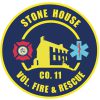MISSION
To protect and support our community through education, prevention and emergency response.
VISION
The Prince William County Fire and Rescue System is comprised of dedicated volunteer and career members who strive to provide exceptional services through the pursuit of inclusion, innovation and involvement.
VALUES
Integrity – We will always demonstrate the utmost honesty, by upholding our principles at all times, and being accountable for our actions.
Excellence – We will surpass the standard to achieve the absolute best in all that we do.
Pride – We will share an identity that fosters a culture of inclusion, confidence, honor and respect.
LEARN MORE ABOUT VOLUNTEERING IN YOUR COMMUNITY.
A CAREER YOU CAN BE PROUD OF.
OUR PROCESS IS OPEN. FOLLOW THE LINK TO FILL OUT AN APPLICATION.
THE FIRE & RESCUE SYSTEM
Prince William County, Virginia is a dynamic community located 35 miles southwest of the District of Columbia. Prince William County’s fire and rescue service is provided through a combination career and volunteer system. Collectively, these organizations work together to provide high quality and efficient firefighting and emergency medical services. The County’s Department of Fire and Rescue currently consists of 763 members, a combination of non-uniformed and uniformed individuals.
EMERGENCY MEDICAL SERVICES (EMS)
The Prince William County Fire and Rescue System offers exceptional EMS training opportunities to its members for both initial and continued education. The System is one of two accredited fire-based paramedic programs in the Commonwealth of Virginia. This allows the System to offer providers the opportunity to take an intensive 49-week Paramedic program in-house.










